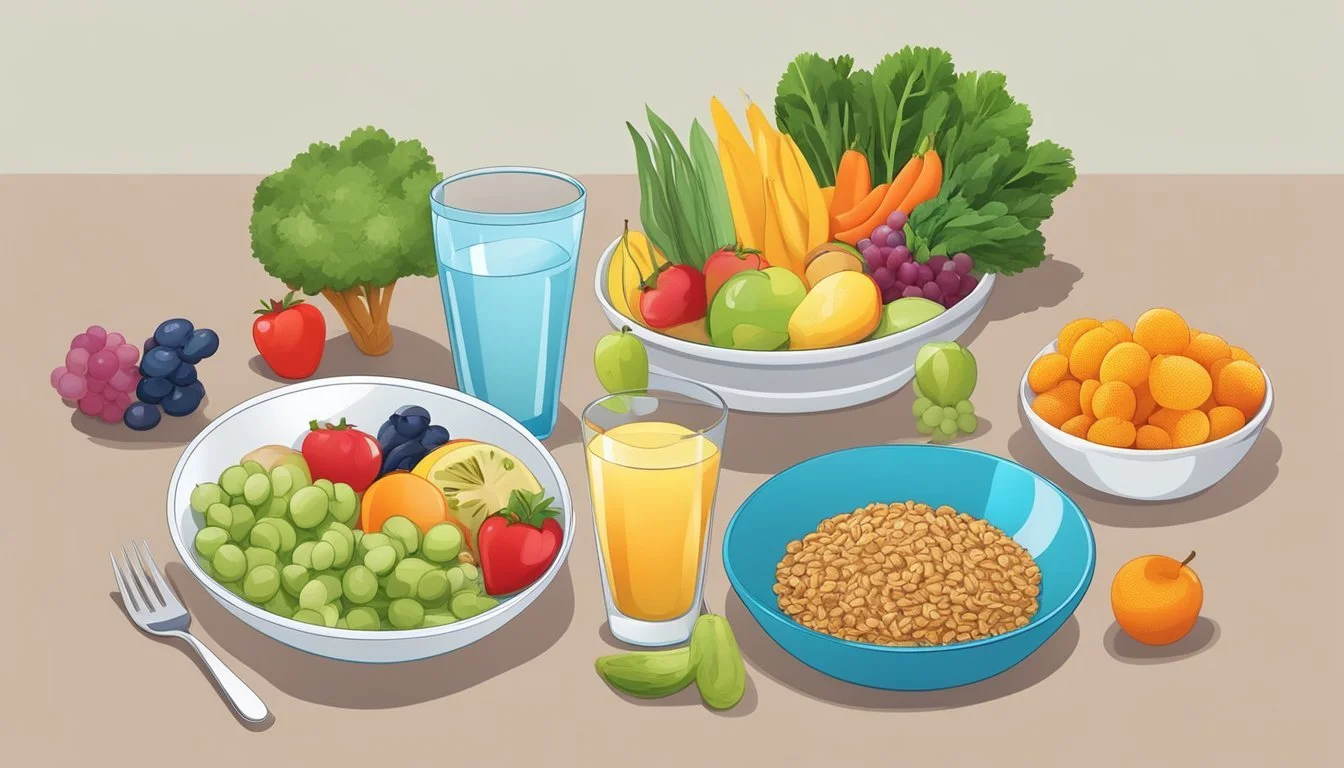Tasty Foods to Gently Ease Your Toddler's Constipation
Dealing with toddler constipation can be challenging and worrisome for any caregiver. Proper nutrition plays a vital role in helping a 2-year-old maintain regular bowel movements. Including certain foods in their diet can naturally aid digestion and ensure smoother transit of food through the gut.
Caregivers often look for natural ways to alleviate constipation in toddlers, focusing on diet and hydration. By understanding which foods can promote better bowel function, they can make informed choices that support their child's digestive health.
1) Puréed Prunes
Puréed prunes are a natural remedy for constipation in young children. They are rich in dietary fiber and sorbitol, which helps soften stool and promote regular bowel movements.
To make puréed prunes, soak dried prunes in hot water for about 10 minutes. This rehydrates them, making them easier to blend into a smooth consistency.
After soaking, drain the water and place the prunes in a blender. Add water gradually, blending until you achieve the desired texture. The purée should be smooth and easy for a two-year-old to eat.
Puréed prunes can be added to other foods like oatmeal or yogurt. This not only helps with constipation but also adds essential nutrients to your child's diet.
It's important not to give too much prune purée at once. Start with a small amount, such as a couple of tablespoons, and observe how your child's digestive system responds.
2) Oatmeal
Oatmeal is a highly effective food to help ease constipation in 2-year-olds. This whole grain is packed with soluble and insoluble fibers, both of which are essential in promoting healthy bowel movements.
The soluble fiber in oatmeal absorbs water and forms a gel-like substance, which softens the stool and makes it easier to pass. Meanwhile, insoluble fiber adds bulk to the stool, aiding in its movement through the digestive tract.
Serving oatmeal can be simple and versatile. It can be cooked with water or milk and served warm. Parents can add fruits like bananas or berries for extra fiber and flavor. Oatmeal can also be used in smoothies or baked into healthy snacks.
It's important to ensure that toddlers drink plenty of water when consuming high-fiber foods like oatmeal. Adequate hydration helps the fiber work more effectively and keeps the digestive system functioning smoothly.
Introducing oatmeal can be a nutritious way to help toddlers maintain regular bowel movements. Regularly including it in their diet can contribute to long-term digestive health.
Understanding Toddler Digestion
The digestive system of toddlers plays a crucial role in their overall health and well-being. Proper digestion is essential for nutrient absorption, and understanding its functioning can help address common issues like constipation.
How the Digestive System Works
Toddlers' digestive systems break down food into nutrients that the body can use. Digestion begins in the mouth, where chewing and saliva start to break down food. The food then travels through the esophagus to the stomach, where stomach acids and enzymes continue the process.
The small intestine plays a significant role in nutrient absorption. Here, nutrients from food are absorbed into the bloodstream. The remaining waste products move into the large intestine, where water is absorbed, and the stool is formed before being expelled from the body.
Toddlers' digestive systems are still developing, making them more sensitive to changes in diet and hydration. Ensuring a balanced diet with sufficient fiber, fluids, and healthy fats can promote efficient digestion and prevent common issues like constipation.
Common Causes of Constipation in Toddlers
Constipation in toddlers can occur due to various factors. Diet is a primary cause. Low fiber intake, excessive dairy consumption, and dehydration can all contribute to hard stools. Foods like green bananas, fried foods, and high-fat meats can also slow down digestion.
Behavioral factors play a role too. Toddlers may ignore the urge to poop due to distractions or fear of the toilet, leading to stool retention.
Medical conditions such as hypothyroidism or certain medications can also affect bowel movements. If constipation persists, it is essential to consult a healthcare professional to rule out underlying health issues.
Promoting a diet rich in fruits, vegetables, whole grains, and plenty of fluids can help maintain healthy bowel movements. Regular physical activity and establishing a consistent toilet routine can also aid in preventing constipation.
Nutritional Guidelines for Preventing Constipation
Ensuring a child consumes the right foods and stays hydrated is crucial for preventing constipation. Key factors include incorporating fiber-rich foods and maintaining adequate hydration.
Importance of Fiber-Rich Foods
Dietary fiber is essential in aiding digestion and preventing constipation. For a 2-year-old, recommended daily fiber intake is approximately 19 grams. Foods rich in fiber include fruits, vegetables, whole grains, and legumes.
Children should be gradually introduced to these foods to avoid digestive discomfort. High-fiber foods can be listed as:
Apples with skin
Pears
Broccoli
Carrots
Oats
A balanced inclusion of these sources can help in smooth bowel movements, making it easier for children to pass stools.
Hydration and Its Role in Digestion
Adequate fluid intake is equally important when addressing constipation. Water helps soften stools, making them easier to pass. A good rule of thumb is offering water regularly throughout the day. Other liquids like natural fruit juices and clear soups can also contribute to hydration.
It's advised to avoid sugary and caffeinated drinks as they can lead to dehydration. Ensuring the child drinks plenty of fluids supports overall digestive health and complements the fiber in their diet.
Lifestyle Tips for Healthy Digestion
Regular exercise plays a crucial role in digestion. Physical activity helps stimulate intestinal muscles, which can lead to more regular bowel movements. Encouraging a toddler to engage in activities like walking, playing, or dancing for at least 30 minutes daily can be beneficial.
Another important aspect is maintaining a consistent meal schedule. Eating at regular times helps regulate the digestive system. Parents can set specific times for meals and snacks to foster this routine.
Staying hydrated is essential. Water aids in the digestion process and helps move food through the intestines. Ensure that the child drinks enough water throughout the day. Milk and clear soups can also contribute to their fluid intake.
Incorporating fiber-rich foods into the diet can enhance digestive health. Foods such as whole grains, fruits, and vegetables are excellent sources of fiber. For instance, apples, pears, and carrots can be included in meals or as snacks.
Limiting intake of sugary and processed foods is advisable. Such foods can lead to digestive issues and constipation. Instead, opting for natural and minimally processed options can promote better digestion.
Probiotics may also support healthy digestion. These beneficial bacteria can be found in yogurt or specialized supplements. Probiotics may help balance the gut microbiome and improve bowel regularity.
Simple habits, such as encouraging toddlers to chew their food thoroughly, can make a difference. Proper chewing breaks down food better, making it easier for the digestive system to process. This practice can be encouraged during meal times.
By focusing on these lifestyle tips, parents can help promote healthy digestion and support the overall well-being of their two-year-old.




